NEWS & VIEWS
Who even watches TV anymore?
By Nikita Nielsen, Junior Planner
25/06/2025
A couple of months ago, I completed the TV Masters course offered by Thinkbox, the marketing body for commercial TV in the UK. The course was great for two reasons: one, it was completely free and two , it was incredibly informative and eye-opening (which you don’t always expect from a freebie).
With social media’s incredible penetration and screen time getting longer and longer, it’s hard to believe that TV is still relevant. People who work in marketing are all too familiar with LinkedIn “experts” (and certain family members at Christmas) claiming with an adamance usually reserved for WWE announcers, that TV is dead.
But… it’s not. What’s harder to believe is that more people don’t know it’s not dead, when there is a wealth of evidence that demonstrates the opposite. For starters, did you know that TV actually outperforms every other media channel? Take a look:
Exhibit A: TV’s reach is unrivalled.
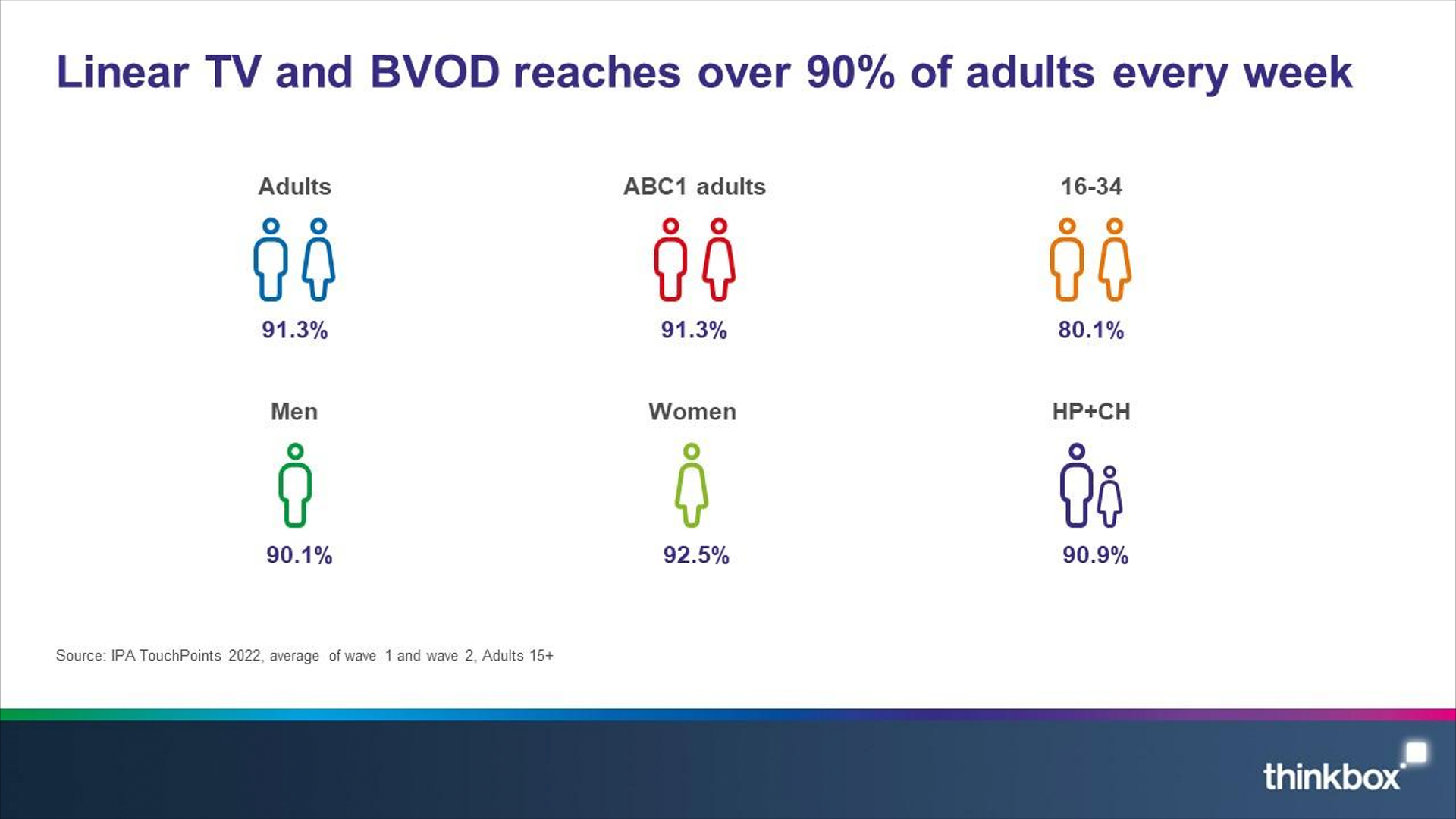
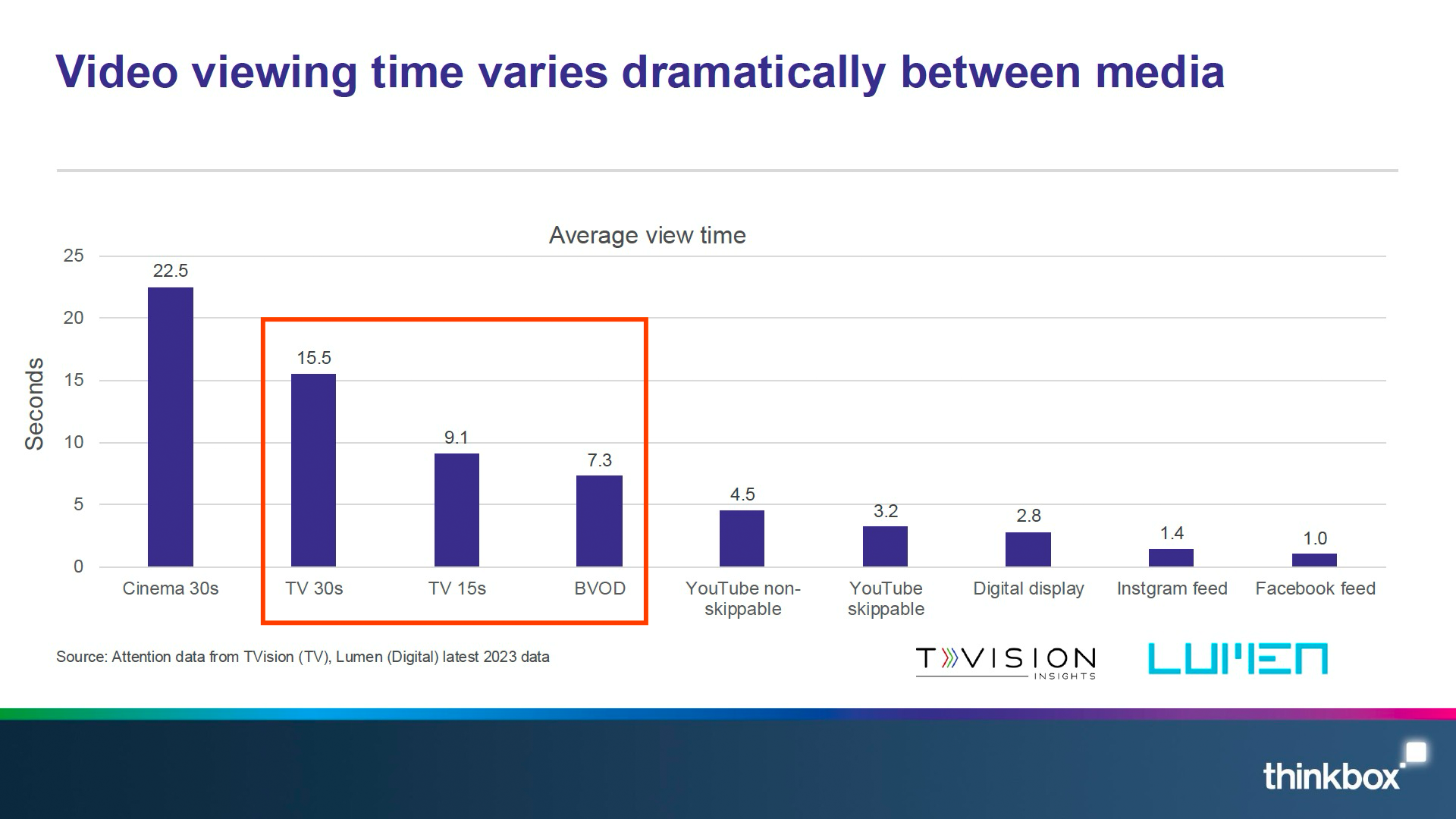
Exhibit C: People trust TV more
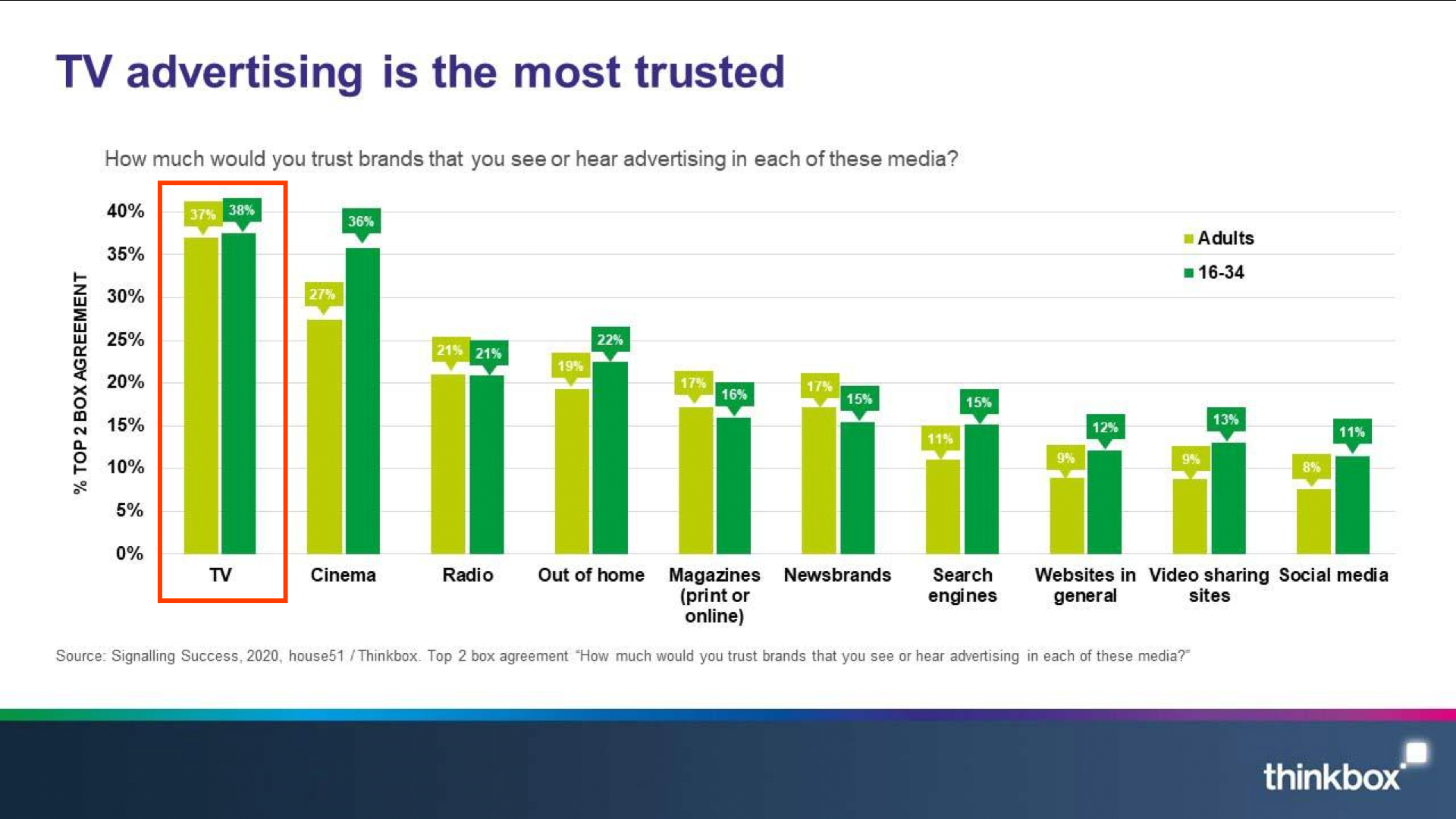
The data is solid, and behavioural science can help explain some of it.
Firstly, the environment we watch TV in sets ads up to win. When you're slouched on the sofa with a glass of wine, you're more relaxed. And research shows that when you're in a good mood, and your stress levels are low, you're more likely to notice what's on screen. If a brand manages to make you laugh? Jackpot.
Secondly, people trust ads on TV more because it is public and is perceived as an expensive media platform. Research conducted by the author Richard Shotton shows that claims made in public are more trusted than claims made in a private setting; while a study conducted at Duke University revealed that trust in a brand is linked to its perceived expense - the higher the expense the higher the brand’s perceived quality.
With TV’s high attention, it also shouldn’t come as any surprise that creative benefits from being on TV. Which brings us to advertising’s favourite eff-word…
Exhibit D: Higher-attention platforms can make your creative work harder
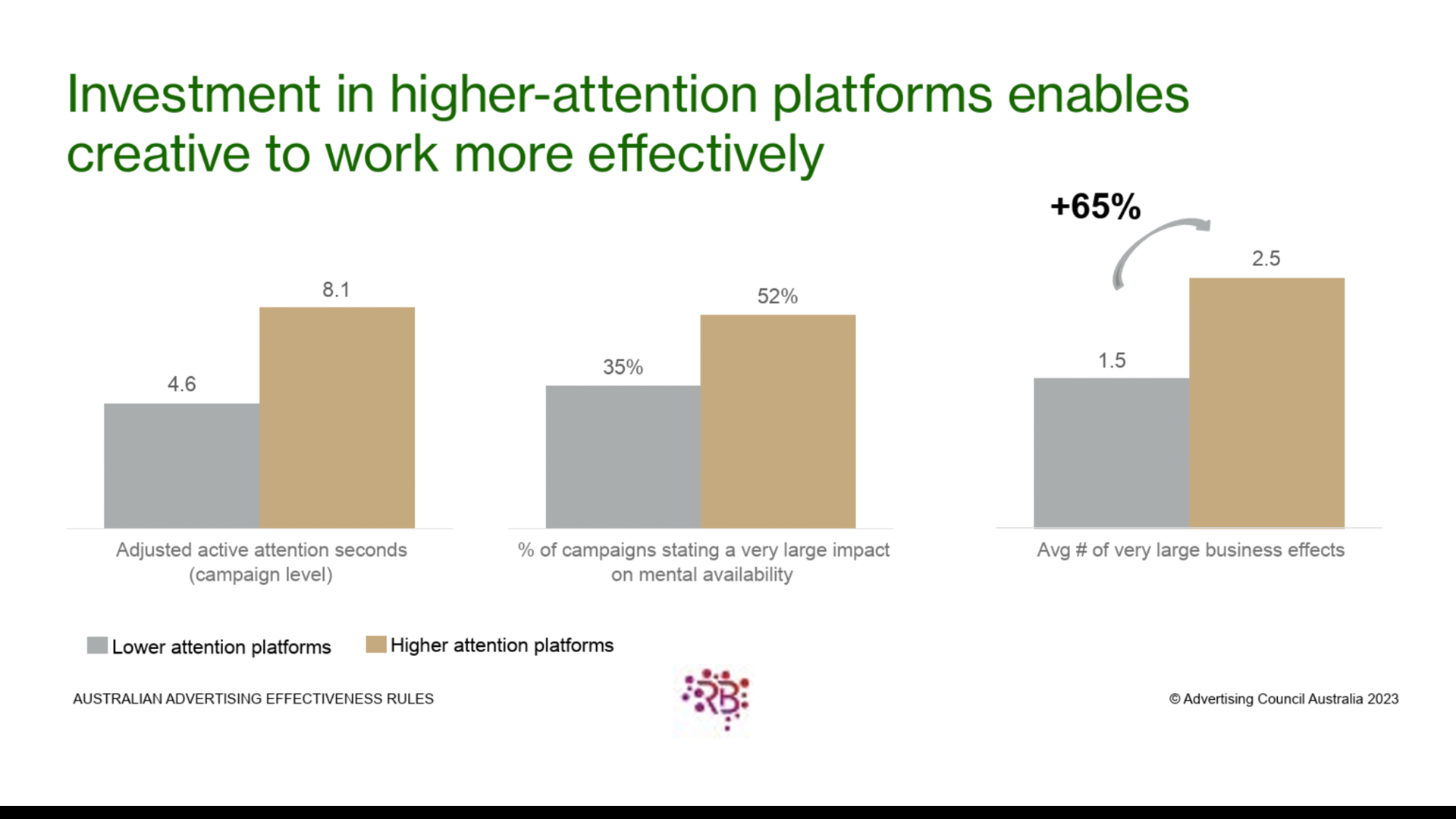
Exhibit E: TV is important for emotional campaigns
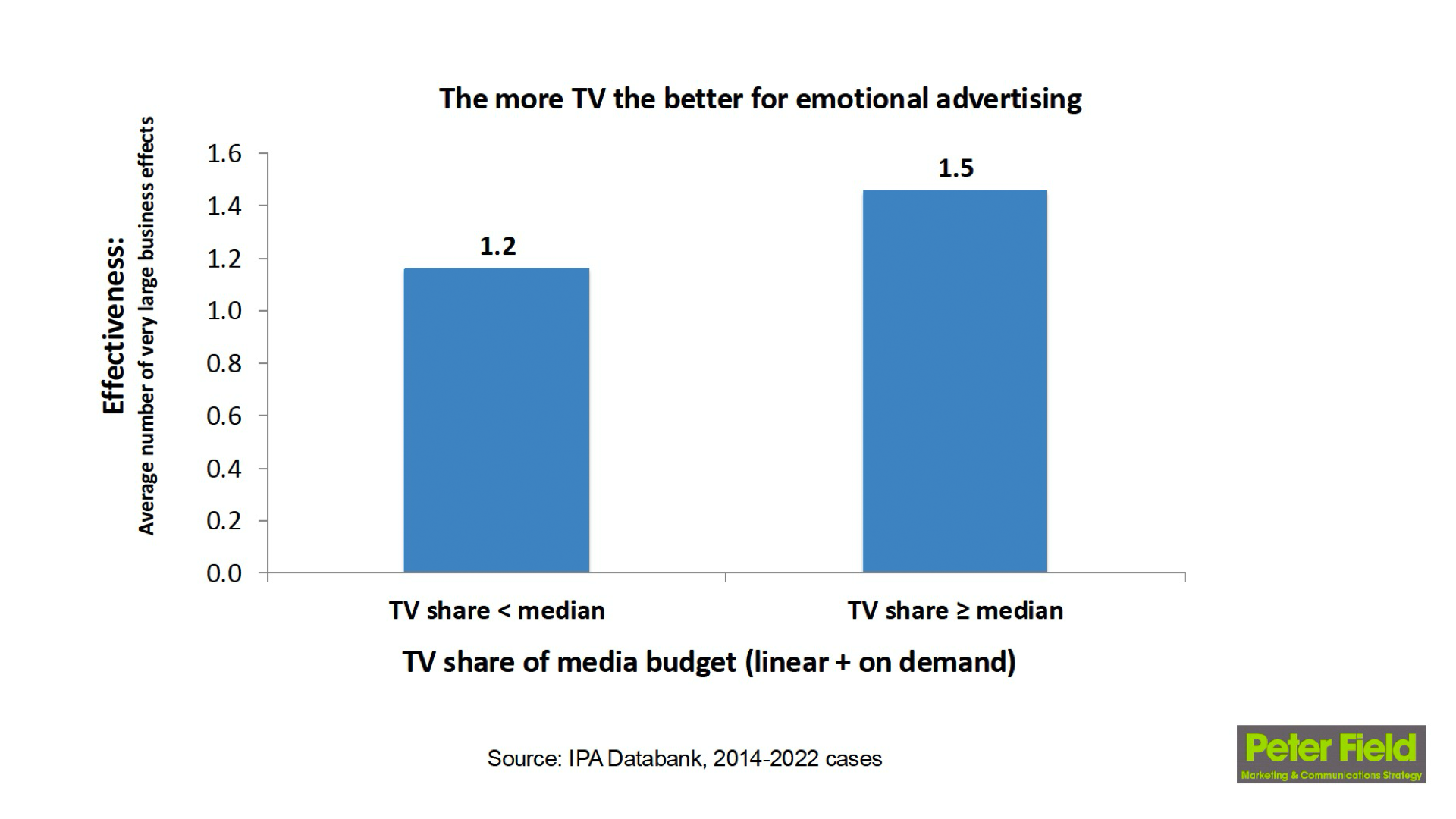
At the core of advertising effectiveness is a simple truth: people need to notice you, remember you, and think of you when it matters. That's mental availability, and it's what will drive long-term brand success. To build it, you need attention.
Specifically, Dr. Karen Nelson-Field’s research reveals that 2.5 seconds of active attention is the magic number. That's the minimum time it takes for an ad to be memorable. 2.5 seconds might not seem impressive, but her research actually shows that most online ads aren’t able to hold our attention for even that amount of time.
This is where TV excels. TV's reach, ability to grab and hold attention, its trustworthiness and its ability to deliver on emotion all mean that TV can help achieve mental availability, and thereby effectiveness, better than other media platforms.
Look at IPA effectiveness awards cases over the last decade: TV has consistently been used in around 80% of them.
Exhibit F: TV is an effectiveness driver
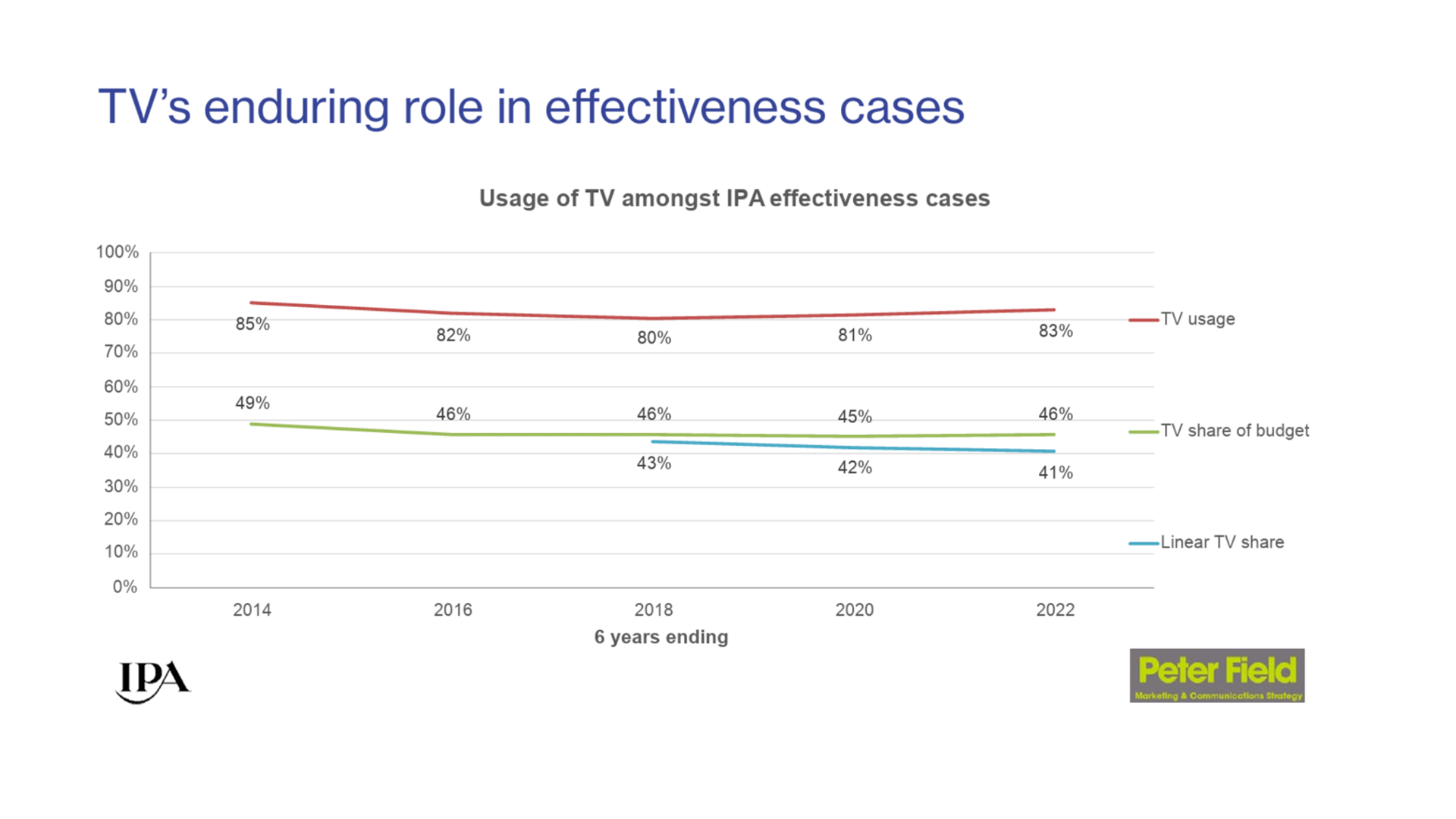
The news of shortening attention spans can paint a pessimistic picture for our industry, but here it’s also important to remember that TV isn’t a shortcut for achieving quality creative work. TV is at the heart of effectiveness, but simply choosing it to be a part of your media plan isn’t where effectiveness efforts should begin and end. Achieving effectiveness isn’t an isolated effort, nor is it the responsibility of one person or team.
Brands should leverage TV’s potential to invite attention, rather than demand it. In the words of Sir John Hegarty: “The problem isn’t our ability to pay attention. It’s what we’re being asked to pay attention to.” The creative that finally does make it into the households of the UK should entertain the audience and make them feel something. And that starts as it always has, especially for us at DC: with good ideas developed from strong strategic insights.